SERIES REVIEW – Juliette Binoche and Ben Mendelsohn brilliantly portray the two former fashion designers: Coco Chanel and Christian Dior in Apple TV+’s stunning series. In this thoroughly developed World War II drama, two legends of the fashion industry traverse different life paths from Nazi-occupied Paris to post-war Europe, unveiling a story that’s simultaneously exciting, emotionally rich, and thought-provoking about both them and this tumultuous, bloody, and dark era.
In the series, a supporting character, a third fashion designer: Cristóbal Balenciaga (Nuno Lopes) ponders the future on a dark, Nazi-occupied night, quoting a friend who describes the situation. “All bad things come to an end, right?” he questions. “But now you must think: when that time comes, will you be able to live with what you’ve done? I believe our choices carry significant weight.”
Apple TV+’s The New Look captures the defining moments of French haute couture, showing how creation brought back hope and life to the post-World War II world, as a preview card solemnly informs us. However, it serves more as a deep, reflective look at the significance of our choices rather than a lesson in history or art, pitting two rivals, Christian Dior (Ben Mendelsohn) and Coco Chanel (Juliette Binoche), against each other during this period.
The Human Side of Fashion Icons
At the beginning of The New Look, the world of luxury and fashion’s giants almost captivates the viewer, with characters whose significance and style are akin to what we might only see in the display windows of luxury stores on Andrássy Avenue. We witness exciting moments as Dior meets with his friends, Balenciaga and Pierre Balmain (Thomas Poitevin), or Chanel’s scornful remark that Dior “does not deserve the lavish praise.” Initially, these opening sequences are mostly fascinating because we are already familiar with these famous names from the world of fashion. As a series about fashion dictators, it’s no surprise that The New Look is thoroughly developed: constantly dazzling us with lavish locations and period costumes. We are enchanted by luxurious ballrooms and cozy workshops, and the mentioned dresses are worked out down to the smallest details. But we also have no complaints about the musical side: at the end of each episode, we can hear songs by famous artists performed by Jack Antonoff: Florence Welch’s “White Cliffs of Dover” and Lana del Rey’s “Blue Skies” melodies – encouraging the viewer to watch the end credits just for the music.
But beyond the splendid settings and excellent musical segments, Todd A. Kessler’s series portrays Coco and Christian not as fashion icons, but as people who often make flawed, sometimes repulsive decisions. We meet them in 1943, when neither shows much interest in the war events and do not want to intervene, but fate has it that they are inevitably involved. Christian is still an emerging designer, making ball gowns for Nazi clients under the wings of Lucien Lelong (John Malkovich), while secretly providing money, shelter, and moral support to his resistance fighter sister, Catherine (seen in a heart-wrenching performance by Maisie Williams from Game of Thrones). Coco, who had already built her reputation and fortune before the war broke out, initially mobilizes her Nazi acquaintances only to desperately try to free her nephew, a French soldier taken prisoner, but as time goes by, she increasingly strives to save herself and preserve her own well-being.
Two Separate Characters, Personalities, and Life Paths – Skillfully Contrasted
From the beginning, the narrative arcs of Coco and Christian are so distinct that they rarely meet in person throughout the ten one-hour episodes of the series. However, Kessler skillfully creates a connection between the two narrative threads and the protagonists, utilizing the intellectual and emotional depths that unfold from these sharp contrasts. In one scene, Christian shares his thoughts with a stranger in a dim café about news reports on concentration camps, while in the next, Coco and her great-niece casually roam a Swiss shopping street. The exciting but skillfully inserted switches between the lives of the two characters present stark contrasts between them, making Chanel’s personality and actions particularly stomach-churning at times.
Coco’s story is easier to follow; The New Look cleverly bridges the gap to understanding her motivations without excusing her actions. Binoche’s character is captivating and attractive, yet often immeasurably calculating, cold-blooded, and cynical. In the first episode, we see her taken “shopping” by a handsome Nazi agent to an apartment confiscated from a wealthy Jewish family. Coco is momentarily moved when looking at the photos of the former occupants, contemplating that “without wealth and power, we are all replaceable.” However, when she sees a desirable item, all doubts and moral scruples disappear, and her lofty thoughts instantly evaporate. Later, as the Nazis begin to decline, Coco passionately complains about being unfairly branded a collaborator, emphasizing that nothing was really her fault, thus making her self-defense mechanism completely understandable and clear to the viewer.
In contrast, Christian’s psychology is more complex and haunting. He deeply feels the guilt for everything happening to his sister Catherine, and he would surely be the first to admit that she is the real hero of this story. Yet, he is also a truly complex character – fragile and constantly frightened, but fundamentally kind-hearted, a significant departure from Mendelsohn’s previous, much more negative and sordid roles (including Kessler’s Netflix drama Bloodline). Christian always anticipates punishment, often speaking in a confused, timid, or submissive manner, worried about the seriousness of the situation or his sister, frequently with a bowed head. Mendelsohn expresses Christian’s heartache, fear, or sorrow with tremendous acting power, though the script perhaps does not give him enough room for this.
Although Christian and his boss: Lucien (John Malkovich speaks with a bit of a strange accent in this role) occasionally reflect on how immersing themselves in creation could be a way to endure the German occupation and the horrors of war, Christian’s inspiration and creative process are nonetheless not sufficiently explored in The New Look.
Coco Chanel in the Mirror of History
As for Coco: she primarily focuses on business interests, as opposed to art. The series acknowledges the practical difficulties she and other designers face, such as the shortage of materials, which led to the famous Théâtre de la Mode exhibition of miniature dress collections. However, the drama does not provide an in-depth insight into the essence of Christian’s work or into why his designs were revolutionary. The analysis of Dior and Chanel’s work within a broader cultural context receives little emphasis, beyond a few abstract remarks, such as those made by Harper’s Bazaar editor Carmel Snow (Glenn Close), stating that “fashion needs a new leader.”
Perhaps The New Look assumes this aspect is not crucial. The first season begins and ends with a triumph for Christian as he presents his widely acclaimed 1947 collection, which also gives the series its title, and a seemingly defeat for Coco when it appears her secrets have been revealed and her fate has caught up with her. However, we well know that Coco Chanel’s downfall does not occur; the storms of her life have not harmed her reputation or her business, which she often worried about in the series. Today, in 2024, Chanel remains one of the world’s most sought-after luxury brands, and its founder’s Nazi connections have long since faded into the mist of the past. It’s unlikely that even this series would change that situation. Nonetheless, it reminds us that their story is more than just the legacy of Christian and Coco; it also encourages us to reflect on our own decisions and their weight in our own complex, often confusing, and in many respects, not too rosy era.
-Gergely Herpai (BadSector)-
The new look
Direction - 9.2
Actors - 9.4
Story - 8.8
Visuals/Music/Sounds - 9
Ambience - 9.2
9.1
AWESOME
The New Look tells the story of the rivals Coco Chanel and Christian Dior, who navigate through Nazi-occupied and post-war Europe on their distinct paths. Through the world of fashion and the presentation of this dark era, the series examines the weight of human decisions and their historical impact. Viewing the remarkable performances of Juliette Binoche and Ben Mendelsohn on Apple TV Plus, audiences gain insight into the complex and captivating story of creativity, survival, and human fallibility.

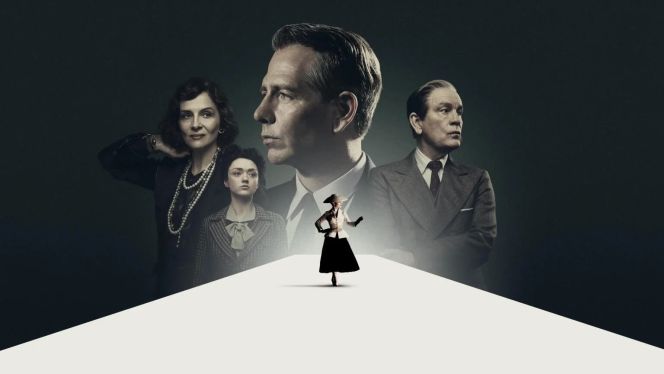
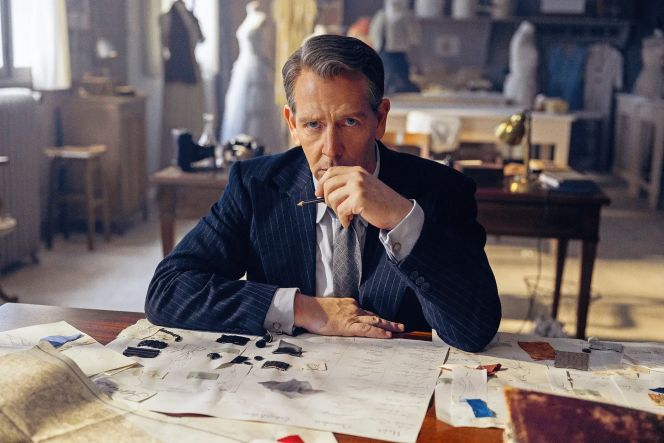
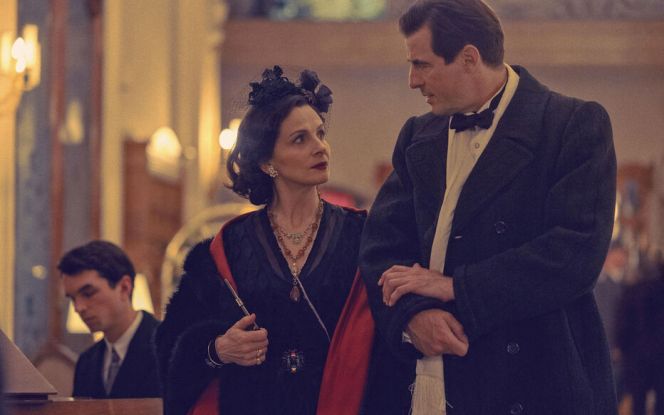









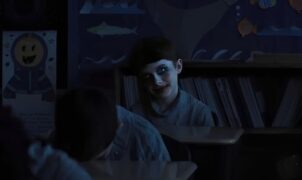
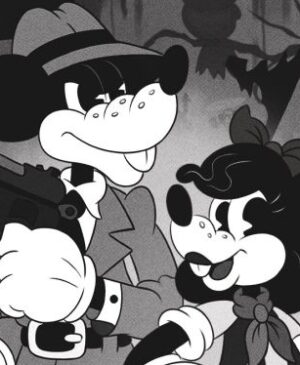
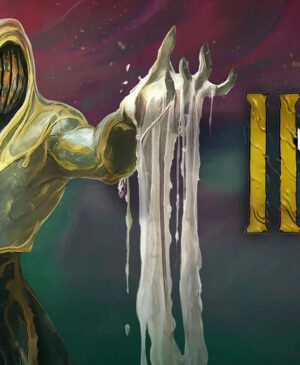


Leave a Reply